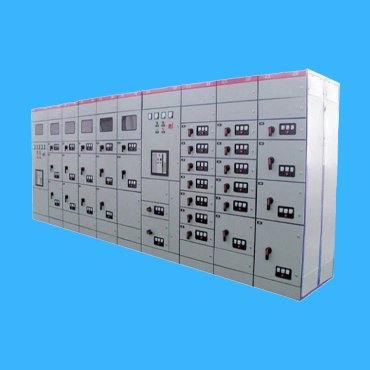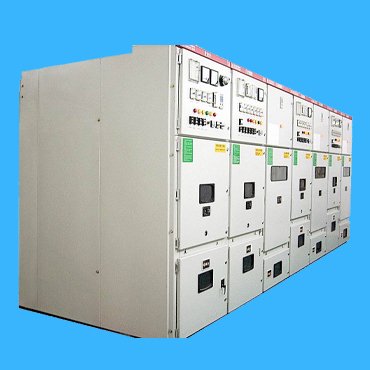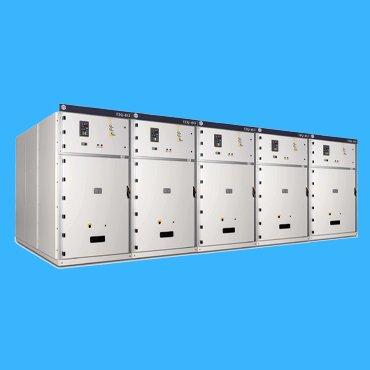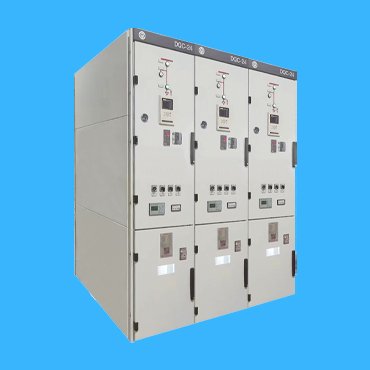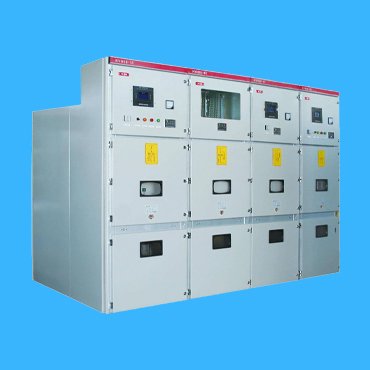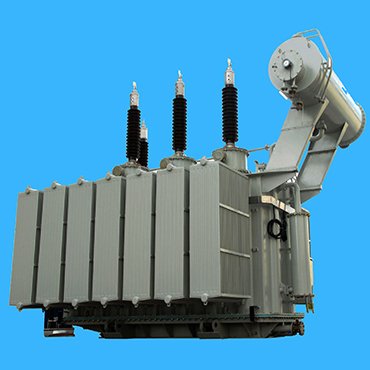Your Best Electrical Switchgear Manufacturer in China
As a leading manufacturer of electrical switchgear, we are committed to provide you with one-stop services for electrical engineering consultation, design, manufacturing, installation and commissioning for your electrical distribution system.
- Safe, assuring the whole electrical distribution system running smoothly
- Flexible & custom design to fit your uniqe needs
- Compact design to save your limited space
- Low or free maintenance cost.
What is an Electrical Switchgear
An Electrical switchgear, having switches, fuses, circuit breakers, instrument transformer, surge arresters, auto reclosures and sectionalisers and other protecting devices such as mutual inductors, relays, contactors and motor starters, housed in metal enclosures to protect the components from dust, moisture. It is used to protect, control and isolate electrical equipment in all kinds of power system.
Over the years, we offered a full engineering, design and technical support for custom electrical switchgear for a wide variety of applications, including Low voltage panels, medium voltage switchgear, Unit substation and industrial enclosures & cabinets up to 400 KV. Please contact our expert engineers for your tailored electrical switchgears.
Low Voltage Panel
Rated up to 1000 V AC and 1500V DC; In addition to our high efficiency distribution transformer & innovatitive Cu or AL busway product, we can seamlessly connect your MV & LV system, assuring it running safely & smoothly.
Voltage Rated 380v/440v/690v
Current Rated 630 A or more
Referring to IEC 61439-1/-2
Rated Frequency 50Hz or 60Hz
IP30-IP40 protection grade
Modular design, flexible combination

Current Rated up to 3500 A
Rated breaking capacity up to 50 kA


Referring to IEC 439
Three-phase four or five wiring system
Medium Voltage Switchgear
Rated from 3.3 kV to 33 kV, is capable of switching inductive currents, capacitive currents and short circuit current.
Why Choose us




Safety and Reliability
Anti-arc design and other prevention measures effectively ensuring our electrical switchgear protection from excessive heat, overvoltage, and current overload etc.

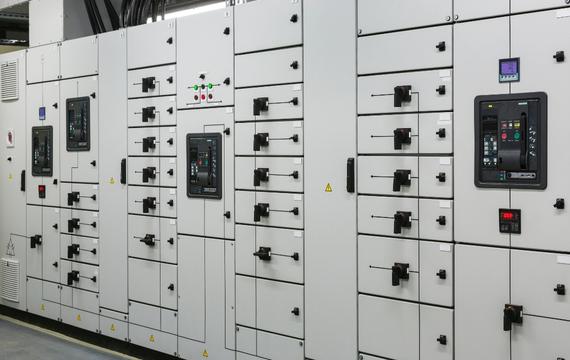
Wide Range of Applications
We can provide a full range of low–voltage & medium-voltage electrical switchgear solutions to meet the requirements of customers in various industries.
24/7 Technical Support
Our technical support service encompass from initial design, production, installation, commissioning, maintenance and training.

What's the difference between an electrical switchgear and a circuit breaker?


A circuit breaker is a safety device installed to protect an electrical circuit from damage due to overload and fault current, which can be used separately in a low-voltage system, while need to be equipped in an electrical switchgear in a medium or a high-voltage system.
For an electrical switchgear, it is used to open, close, control, and protect electrical equipment in an electrical system. Its components typically include circuit breakers, isolation switches, load switches, operating mechanisms, transformers, and some other protection devices, so circuit breaker is only an important component in a medium or high electrical switchgear.
Related Product
What functions of an electrical switchgear
The main function of high-voltage switchgear is to open, close, control, and protect electrical equipment during the process of power generation, transmission, distribution, and energy conversion in the power system. it also used to receive and distribute network energy, control, monitor, measure, and protect power grid system. The components inside an electrical switchgear mainly consist of circuit breakers, isolation switches, load switches, operating mechanisms, transformers, and various protective devices.
What types are there for an electrical switchgear
There are many classification methods for high-voltage switchgear, such as the installation method of circuit breakers, which can be divided into movable switchgear and fixed switchgear; Or according to different cabinet structures, it can be divided into open type switchgear, metal enclosed switchgear, and metal enclosed armored switchgear; According to different voltage levels, it can be divided into high-voltage switchgear, medium voltage switchgear, and low-voltage switchgear. Mainly suitable for various occasions such as power plants, substations, petrochemicals, metallurgical steel rolling, light industry textiles, factories, mining enterprises, residential communities, high-rise buildings, etc.
Meanwhile, we need to pay more attention to the potential factors caused a failure of an electrical switchgear.
85% of the insulation failure of an electrical switchgear is caused by partial discharge. Timely and effectively finding the partial discharge defect of an electrical switchgear can avoid the further development of insulation defects and reduce the power failure loss caused by the equipment failure. Partial discharge detection is an effective means to reflect the insulation status of an electrical switchgear, and is also a hot spot of current research. Partial discharge detection and fault diagnosis of high-voltage switchgear is an important status information quantity to achieve condition based maintenance of equipment, and is the key to ensure safe and reliable operation of equipment. In a high-voltage switchgear, not only the role of electric field causes insulation deterioration and insulation failure, but also the role of mechanical force and heat, or the joint role of electric field, Ultimately, it will also develop into insulation faults. Ultimately, it affects the quality and reliability of power supply.
The analysis of accident causes mainly includes the following aspects:
(1) Insufficient creepage distance and air gap: Insufficient creepage distance and air gap are the fundamental reasons for insulation damage accidents in switchgear. Especially for handcart cabinets, in order to shorten the size of the cabinet and significantly reduce the distance between the circuit breakers and isolation plugs installed inside the cabinet, effective measures to ensure insulation strength have not been taken.
(2) Poor manufacturing and assembly quality and workmanship: Manufacturing and assembly quality have a significant impact on the overall withstand voltage level of an electrical switchgear. Some components inside the switchgear can pass the withstand voltage test, but the overall switchgear cannot pass due to poor assembly quality. If the fastening screws are irregular, the screw will grow too many nuts after tightening; Some fastening base plates supporting ceramic columns are in a “D” shape, and special treatment is made at the supporting ceramic columns, which not only shortens the insulation distance but also causes local concentration of the electric field.
(3) Insufficient contact capacity or poor contact, resulting in heating of the switchgear failure: When the contact capacity is insufficient or poor contact, the local temperature increases, and in severe cases, the current carrying part of the area burns out, causing ground or phase to phase flashover and insulation flashover.
(4) The impact of environmental conditions: The environmental conditions under which the switchgear operates are the main cause of insulation flashover in the switchgear. Atmospheric pollution continues to intensify, gradually polluting the insulators, bushings, and busbars of power equipment.
on the other hand, Partial discharge refers to the discharge that occurs between the electrodes but does not penetrate the electrodes. The cumulative effect of these weak discharges will gradually degrade the dielectric properties of the insulation, expand the defects, and finally lead to the breakdown of the entire insulation. In addition, most mechanical damage will also lead to partial discharge. Partial discharge will cause serious harm to the insulation of electrical equipment, which is mainly manifested in the damage to insulation materials caused by partial heating generated by discharge, impact of charged particles, chemical active products, rays and other factors. This destructive effect on insulation is a slow developing process, and from a local perspective, it is a hidden danger to high-voltage electrical equipment in operation due to various factors. There are mainly the following situations:,
(1) Corona discharge (2) Surface discharge (3) Internal discharge (4) Suspended potential discharge
How to carry out testing and maintenance, we generally take the following measures and methods
1. Infrared thermal image detection 2. Switch cabinet transient ground voltage 3. Ultrasonic detection 4. ultra high frequency detection technology refers to a detection method that collects, analyzes and judges partial discharge signals with a frequency between 300 MHz and 3000 MHz, mainly used for switch cabinet, GIS and cable partial discharge detection. 5. Current detection of opening and closing coils


